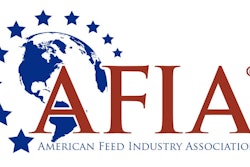In recognition of World Pet Obesity Awareness Day, the Association for Pet Obesity is urging pet owners and veterinary professionals to take a few simple measurements that have a big impact on pet health. This initiative aims to raise awareness and discussion around healthy pet body conditions, identify weight issues earlier, and reduce the risk of pets developing weight-related diseases.
According to the 2022 State of Pet Obesity Report, pet obesity rates in the United States have continued to increase, with 59% of dogs and 61% of cats classified as overweight or have obesity in 2022.
Dr. Ernie Ward, founder and president of APOP, stated, “Obesity poses a serious health risk to dogs and cats, and it is becoming increasingly common around the world. As APOP enters its eighteenth year and moves into the phase of promoting obesity treatments, we decided now was the time to expand our efforts internationally.”
Obesity in animals is clinically defined as a multifactorial disease caused by excessive adiposity that can lead to numerous medical conditions, orthopedic diseases, cardiovascular diseases, metabolic disorders such as diabetes, and types of cancer.
One of the biggest challenges in combating pet obesity is that many pet owners do not recognize when their pets are overweight or obese. In fact, according to APOP’s research, nearly one-third of owners of overweight or obese pets mistakenly believe their pets have a normal body condition, which puts the pet at risk of developing various diseases.
Dr. Ward notes, "One of the biggest challenges veterinarians in every country face is getting pet owners to recognize when their pets are overweight or have obesity. This is why it's so critical for veterinary professionals to discuss healthy weight with their clients and for pet owners to be proactive about their pets' health."
APOP has found that less than half of pet owners reported their veterinarian discussed their pet’s ideal or healthy weight or body condition at an annual appointment. In 2022, only 49% of respondents reported that their veterinary professionals discussed their pet’s ideal or healthy weight. This figure has consistently been 46% to 53% during the past decade of surveys.
Pet owners can also play a role in combatting pet obesity by being more mindful of their pets' nutrition and exercise. Dr. Ward encourages pet owners to be proactive about their pets' health and work with their veterinary professionals to create healthy weight plans for their pets. "Pet owners are responsible for ensuring that their pets are healthy and happy," says Dr. Ward. "Ask your veterinarian what your pet’s body condition score, weight, and how much to feed during each routine exam."
"Pet obesity is a serious problem, but it's a problem we can solve. With continued awareness and innovation, combined with proactive pet owners, we can help our pets live longer, healthier lives," concludes Ward.











